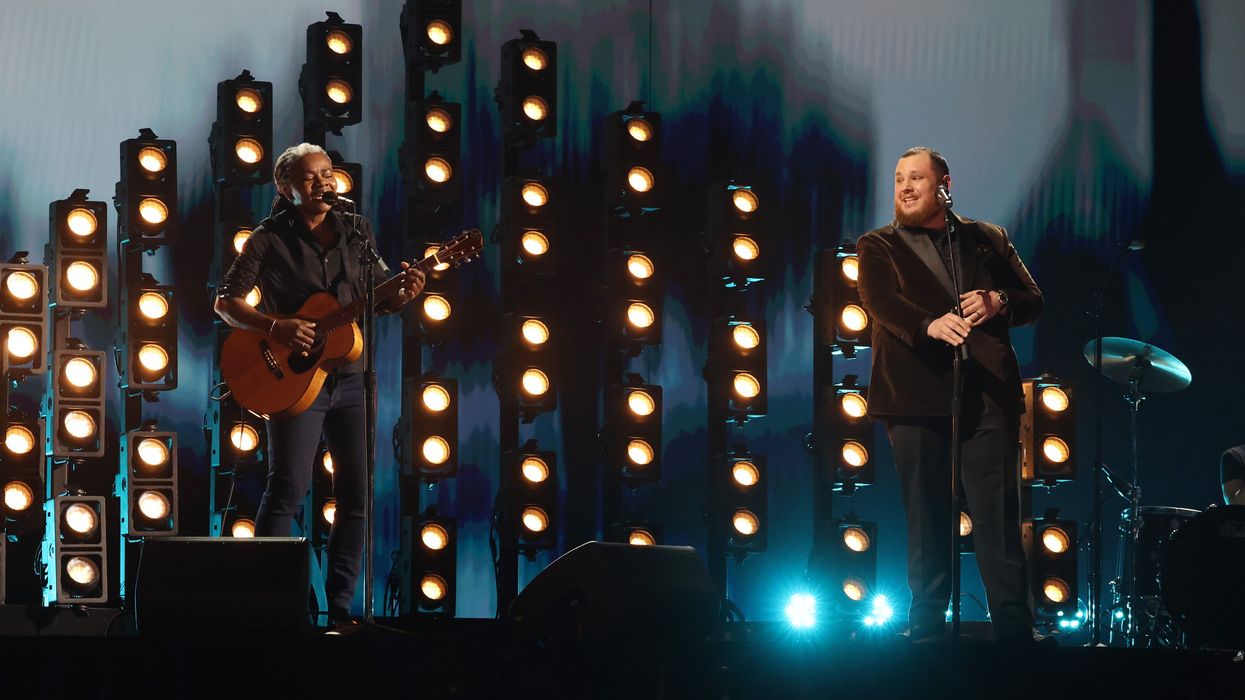Nevins is co-publisher of The Fulcrum and co-founder and board chairman of the Bridge Alliance Education Fund.
It’s been a year and a half since I wrote about “The Great Divide,” Luke Combs' song written by Naomi Judd, Paul Overstreet and John Barlow Jarvis. I was moved by the tremendous response I received, and that article is still one of The Fulcrum’s most-read posts.
The lyrics are as powerful today as they were in November 2023:
Love can build a bridge
Between your heart and mine
Love can build a bridge
Don't you think it's time?
Don't you think it's time?
I would whisper love so loudly
Every heart could understand
That love and only love
Can join the tribes of man
I would give my heart's desire
So that you might see
The first step is to realize
That it all begins with you and me
Yet perhaps my euphoria was misplaced as our nation seems more divided than ever a year and a half later, and I am disheartened that Combs has not spoken out more. I wonder if music stars like Combs could do more.
Of course I understand the dilemma of today’s pop artists. Taking a political stand is applauded by some but it doesn’t come without the risk of upsetting fans who have a different viewpoint. It’s an understandable risk some artists just choose not to take.
Bruce Springsteen and Lady Gaga are examples of artists who use their platforms to persuade fans to support a candidate or a cause even though many who pay to listen to their music could care less about their political opinions.
Other artists took the risk to take a stand in the 2020 presidential election, perhaps to the dismay of their audience. Kanye West joined the fray when he entered the White House wearing a “Make America Great Again” hat and Billie Eilish, at the age of only 18, debuted the first live performance of her single “My Future” at the Democratic national convention. After the shooting of Jacob Blake in 2020, NBA stars LeBron James and Jamal Murray, as well as many other players, expressed their support for social justice by sitting out a playoff game against the Orlando Magic. Their path was influenced by Colin Kaepernick, who knelt to honor Black lives and became an NFL pariah.
Whether celebrity political activism does more harm than good is a subject of much debate, yet in this age of social media the ease of harnessing one’s stardom is increasing. Where in past eras, stars needed movie studios and record labels, many artists own their music and have direct access to their fans.
And arguably the biggest star of them all, Taylor Swift, entered the fray in 2020. In an interview with The Guardian, Swift explained her politics, referring to Donald Trump’s presidency as an “autocracy.” “We’re a democracy — at least, we’re supposed to be — where you’re allowed to disagree, dissent, debate,” she said.
While most of Swift's music stays away from politics, there are exceptions. Her 2019 hit “You Need to Calm Down“ unambiguously takes an equality-first stance as she criticizes haters and homophobes, and ends with a powerful statement to support a Senate petition in favor of the Equality Act, which would protect all people from discrimination.
Released in January 2020, “Only The Young” is considered a protest song by many as her lyrics cover topics such as school shootings, Trump and voter tampering in her lyrics.
“I always have and always will cast my vote based on which candidate will protect and fight for the human rights I believe we all deserve in this country,” Swift said. “I cannot vote for someone who will not be willing to fight for dignity for ALL Americans, no matter their skin color, gender or who they love.”
As we get closer to the November election, expect that many artists will remain silent but others will choose to risk their careers and speak their minds.
Of course there might be a better path to stars getting involved in endorsing candidates or speaking about the issues. Some will choose to speak through their music, as Combs did at the Grammy’s earlier this year. The country was moved as the 34-year-old white country star joined Tracy Chapman, a 59-year-old gay and Black artist, in singing her 1989 hit “Fast Car” at the Grammys.
Coming from different genres, backgrounds and generations, their voices perhaps did more in that one moment to bring our country together and to heal the divide that separates us than if they spoke out about politics.
Relive that moment today:




















Trump & Hegseth gave Mark Kelly a huge 2028 gift